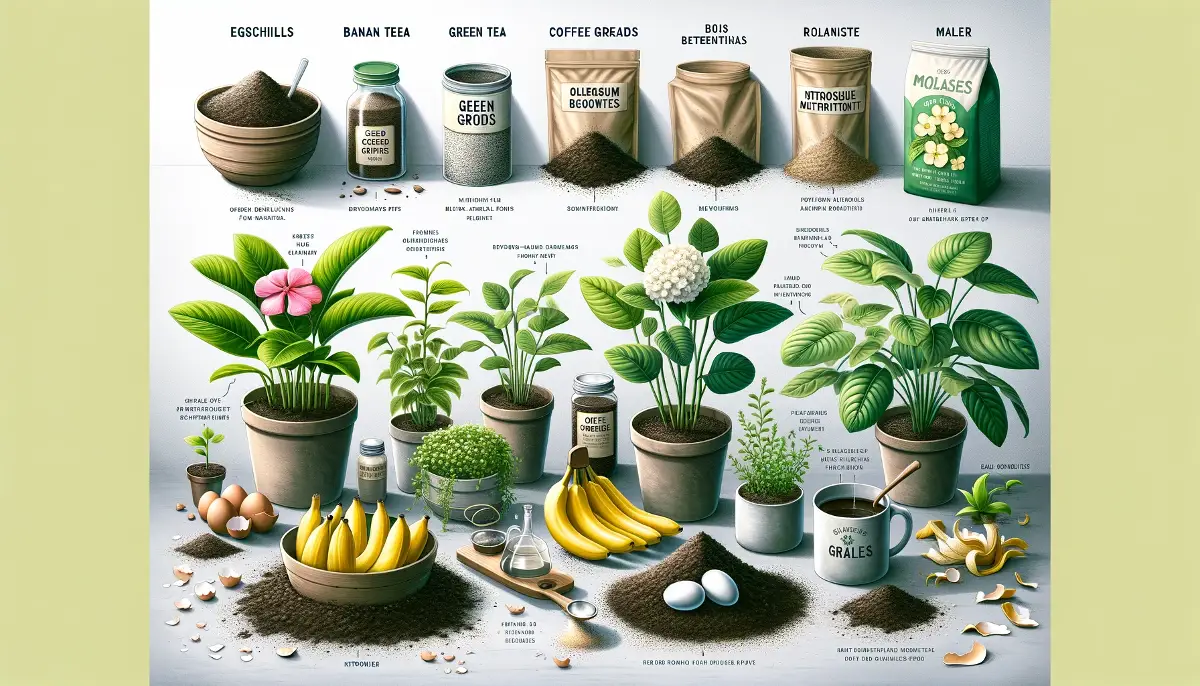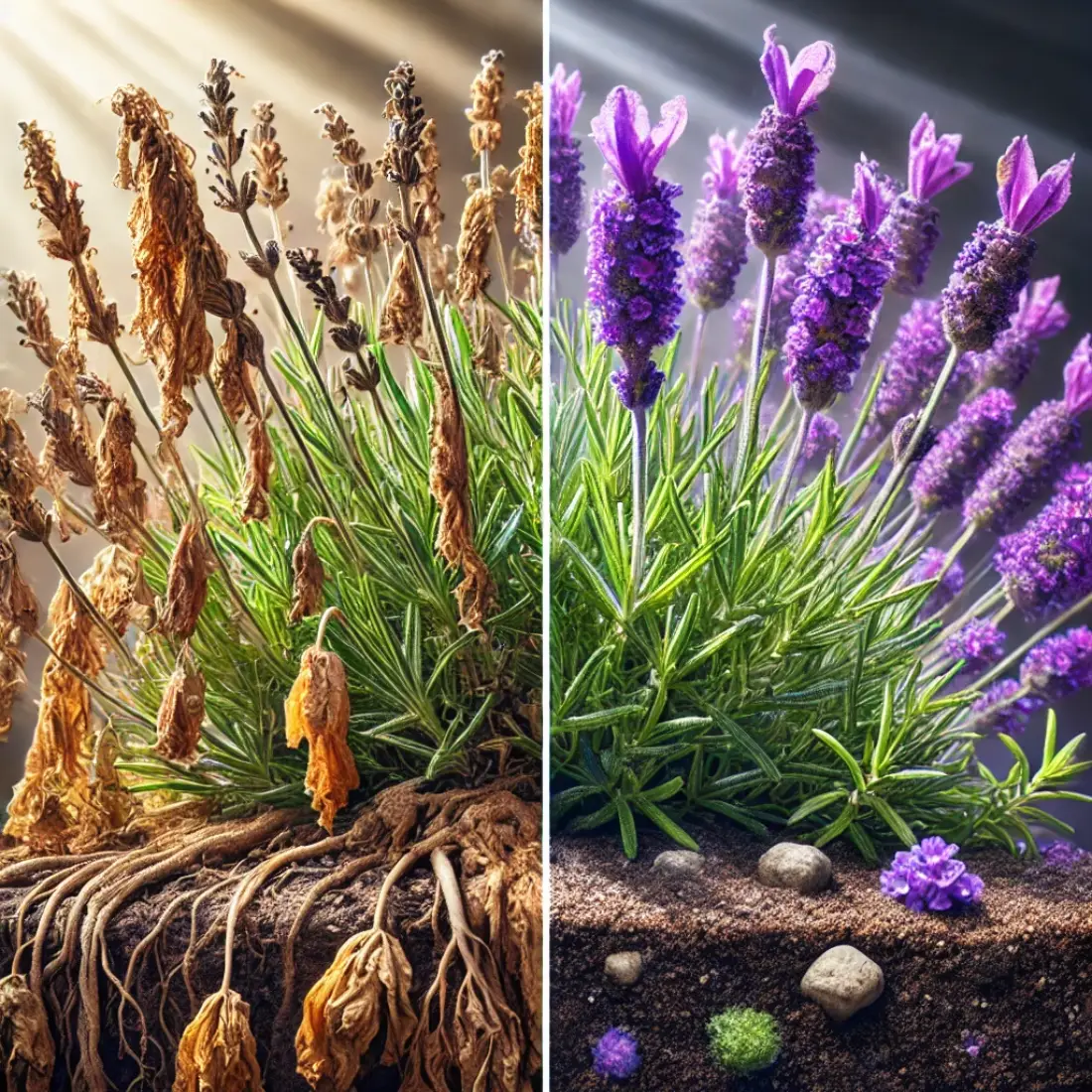Sugar, as a source of energy, is vital for plants. Through the natural process of photosynthesis, plants produce sugars to fuel their growth and development. Some believe that by adding sugar water, they can boost this natural process, potentially aiding in seed germination, root development, and overall plant vigor.
However, it’s not without controversy. Overuse or incorrect application of sugar water can lead to negative consequences, such as attracting pests or promoting fungal growth, which can harm the plants.
- Sugar water can sometimes benefit plants under specific conditions.
- It’s crucial to understand plant biology to use sugar water effectively.
- Overuse of sugar water can harm plants.
Benefits of Using Sugar Water for Plants
Using sugar water for plants can offer several benefits when applied correctly and under the right conditions.
Enhanced Seed Germination
One of the primary benefits of sugar water is its potential to boost seed germination. The sugar provides an immediate energy source, helping seeds to sprout more quickly and robustly. This can be particularly useful for gardeners looking to get a head start on their planting season.
Improved Root Development
Sugar water can also aid in the development of strong and healthy roots. The added sugar can stimulate root growth, leading to a more extensive root system. This is especially beneficial for cuttings and transplants, as a strong root system is crucial for the establishment and nutrient uptake.
Boost in Plant Vigor
By providing an extra energy source, sugar water can give a temporary boost to plant vigor. This can be helpful during periods of stress, such as after transplanting, during drought, or when the plant is recovering from damage. Healthier plants are better able to resist diseases and pests, contributing to overall garden health.
Enhanced Microbial Activity
Sugar water can promote beneficial microbial activity in the soil. These microbes play a vital role in breaking down organic matter, making nutrients more available to plants. A thriving microbial community can enhance soil health and fertility, providing long-term benefits to your garden.
How to Properly Use Sugar Water for Plants
Using sugar water for plants can be beneficial if done correctly. Here’s a step-by-step guide to help you maximize its advantages while minimizing potential risks:
Preparing the Sugar Water
Start by mixing a simple solution. Dissolve one tablespoon of granulated sugar in one quart (about one liter) of water. Stir well until the sugar is completely dissolved. This creates a diluted solution that is safe for most plants. Avoid making the solution too concentrated, as excessive sugar can harm plants.
Application Method
The method of application depends on the plant’s needs:
- For Seed Germination: Soak seeds in the sugar water solution for a few hours before planting. This can give seeds a quick energy boost, aiding in faster and more robust germination.
- For Root Development: When transplanting cuttings or young plants, dip the roots into the sugar water solution before planting. Alternatively, you can water the plant with the solution immediately after planting.
- For General Plant Vigor: Use a watering can to apply the sugar water directly to the soil around the plant’s base. Ensure the soil is moist but not waterlogged.
Frequency of Use
Limit the use of sugar water to avoid negative effects:
- Apply sugar water no more than once every two weeks.
- Monitor your plants closely for any signs of overuse, such as wilting, yellowing leaves, or mold growth on the soil surface.
Monitoring and Adjusting
Keep an eye on your plants’ health and adjust the application as needed:
- If plants show positive growth and no signs of distress, continue with the bi-weekly schedule.
- If adverse effects are noticed, reduce the frequency or concentration of the sugar water solution.
Supplementing with Other Nutrients
While sugar water can provide a temporary boost, it’s essential to maintain a balanced nutrient regimen. Use organic fertilizers and compost to ensure your plants receive all the necessary nutrients for sustained growth and health.
Risks and Drawbacks of Sugar Water for Plants
Risk of Overuse
One of the main risks of using sugar water is overuse. Excessive sugar can lead to an imbalance in the soil’s natural ecosystem. Too much sugar can disrupt the microbial balance, potentially killing beneficial microbes that aid in nutrient absorption. This can result in poor soil health and diminished plant growth.
Attraction of Pests
Sugar water can attract pests such as ants, flies, and other insects. These pests are drawn to the sugar and can infest the soil and plants, causing damage and stress to the plants. This can be particularly problematic in outdoor gardens where pest control is more challenging.
Fungal and Bacterial Growth
Excess sugar in the soil can promote the growth of harmful fungi and bacteria. These pathogens thrive on the extra sugar and can cause diseases in plants, leading to symptoms like root rot, mold growth, and overall plant decline. This is especially concerning in humid environments where fungal growth is already a risk.
Plant Burn
Applying a sugar solution that is too concentrated can cause “burn” or osmotic stress in plants. This occurs when the high sugar concentration draws water out of the plant cells, leading to dehydration and damage. Symptoms of plant burn include wilting, browning, and leaf curl.
Limited Nutritional Value
While sugar provides an immediate energy boost, it lacks essential nutrients required for long-term plant health. Relying solely on sugar water can lead to nutrient deficiencies. Plants need a balanced diet of macro and micronutrients, which sugar water alone cannot provide.
FAQs about Sugar Water for Plants
What plants benefit the most from sugar water?
Plants that are in the early stages of growth, such as seedlings and cuttings, can benefit the most from sugar water. It helps with seed germination and root development. However, it should be used cautiously and not as a replacement for regular plant care.
Can sugar water kill plants?
Yes, sugar water can kill plants if used excessively. Overuse can lead to osmotic stress, root rot, and an imbalance in soil nutrients. It’s essential to follow recommended guidelines and monitor your plants’ responses.
How often should I use sugar water on my plants?
It’s recommended to use sugar water no more than once every two weeks. Frequent application can harm the plants by promoting fungal growth and attracting pests.
Is sugar water good for indoor plants?
Sugar water can be beneficial for indoor plants if used correctly. However, it can also attract pests such as ants and flies indoors. Ensure good ventilation and monitor the soil for any signs of mold or fungal growth.
Can sugar water attract pests?
Yes, sugar water can attract pests like ants, flies, and other insects. These pests are drawn to the sugar and can cause additional problems for your plants.
How do I prepare sugar water for my plants?
Dissolve one tablespoon of granulated sugar in one quart (about one liter) of water. Stir well until the sugar is completely dissolved. Use this solution sparingly and follow recommended application guidelines.
Can I use sugar water on all types of plants?
Not all plants respond well to sugar water. While some may benefit from the extra energy boost, others may suffer from imbalances in soil nutrients and microbial activity. Always test on a small area or a single plant before widespread application.
What are the signs that my plant is not reacting well to sugar water?
Signs that your plant is not reacting well to sugar water include wilting, yellowing leaves, mold growth on the soil surface, and the presence of pests. If these symptoms occur, discontinue use immediately and flush the soil with plain water.
Are there any natural alternatives to sugar water for plant growth?
Yes, there are several natural alternatives to sugar water, such as compost tea, fish emulsion, and homemade plant fertilizers using kitchen scraps. These alternatives provide a balanced array of nutrients necessary for healthy plant growth.
Can sugar water help with plant recovery after transplanting?
Sugar water can help plants recover after transplanting by providing an immediate energy boost and aiding root development. However, it should be used in moderation and combined with proper transplanting techniques and care.










